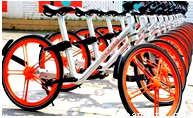0 143645 143653 143659 143663 143669 143671 143675 143681 143683 143689 143695 143699 143701 143705 143711 143713 143719 143723 143725 143729 143731 143735 143737 143739 143740 143741 143743 143744 143745 143747 143749 143753 143755 143759 143761 143765 143771 143773 143779 143783 143785 143789 143795 143801 143803 143809 143813 143815 143821 143825 143831 143839 151629
